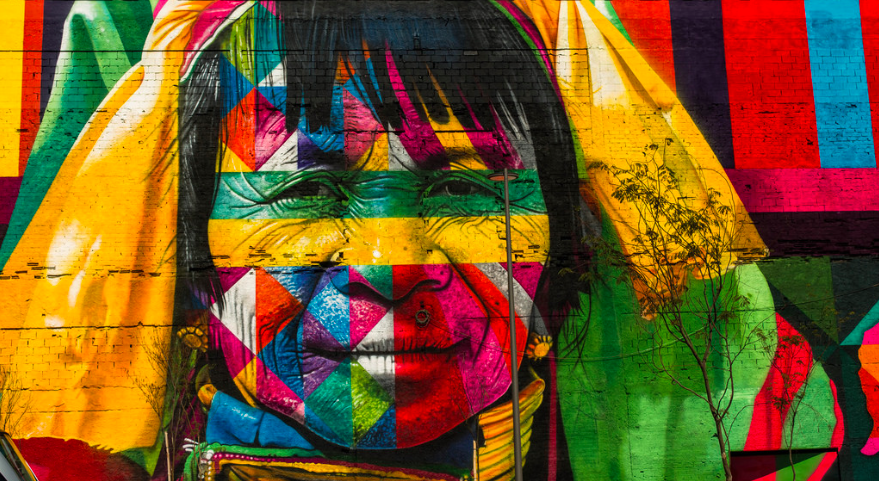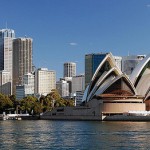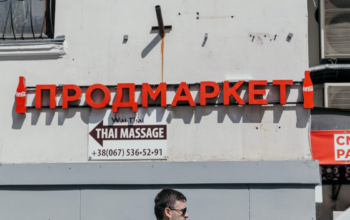The 2016 Olympics have had a bad reputation from the start. Seemingly “doomed to fail”, reports about the first ever Olympic Games held in South America included the obvious safety concerns in a city like Rio de Janeiro with high criminality, drug problems and the almost law free zones in some favelas, as well as the horrific water conditions in the lagoon, the influence on the public, continuous corruption problems and obviously Zika.
I myself, as someone who applied to be a volunteer in the Games in 2014, had my own concerns, but I also questioned if my decision to work for free in this event would be supporting the wrong message and groups with my workforce while knowing that the money spent on the Olympic Games as well as the World Championship in Football could have been used for much more important issues such as the health care and education system in Brazil. But I had fallen in love with Rio and its people during my first visit and I was too eager to return.
And now – a little more than two months later – I am so thankful that I did go and so happy that I got to connect with so many amazing people from all over the globe.
Even before I actually started working I could see just how many foreigners were pouring into Rio, excited to see their favourite sports and happy to get to know a new country. I was extremely lucky to be able to participate in a sport I actually majorly enjoyed: horse riding. It was so easy to share the fascination of horse-riding even with Brazilian colleagues, who did not speak English; the excitement rarely needed translation. And while connecting with other volunteers through a sport we all loved dearly was wonderful and amazing, I do cherish the conversations with Brazilians about their country the most.
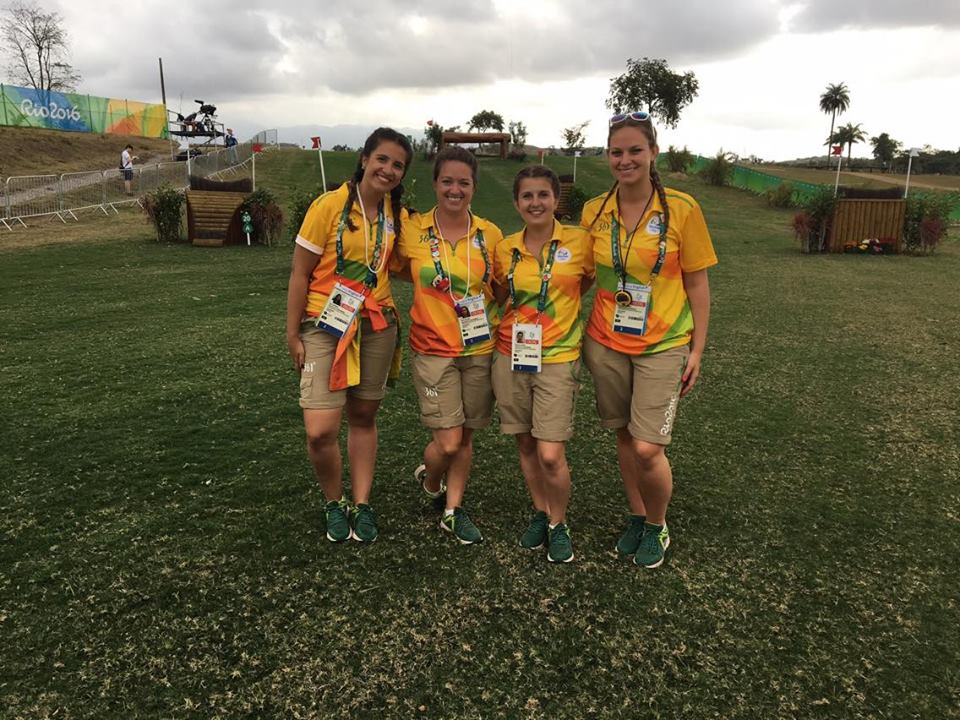
Having a special relationship with South America after spending three wonderful months there after high school and working in a human rights organisation for indigenous people during an internship for my studies, I had soon realised how little South American topics played a role in major news in Europe. Maybe it is simply too far away, or maybe their role is not significant enough in global markets, but news from South America usually only makes it to European media in times of natural catastrophes or major political unrest.
So while I had seen some of the coverage about the protests in Brazil and the wish for an impeachment of president Dilma Rousseff, I had never fully gotten just how fed up Brazilians were with the continuous problem of corruption in their country and how eager they were to talk about it.
While a large portion of my information comes from in-depth talks with Brazilians I actually got to sit down with in hostels or my Airbnb host Paolo, even when I got into an Uber and it was a simple ten minute ride, the huge problem of ‘corrupcão’ – corruption – came up. Having been to Brazil only three years prior, this huge change in attitude astonished me. While I had realistically not discussed politics at all during my first trip, now conversations about it started out of the blue.
First I believed this was only going to be the case in Rio, where people were directly impacted by the Olympic Games, but it ran like a red thread through my travels across Brazil and the huge gap between rich and poor, the feeling of helplessness against such a deeply rotten political system, but at the same time the strong wish to change something popped up everywhere.
I have rarely seen a people so passionately discussing politics on a daily basis.
Both the huge corruption scandal around the oil company Petrobras, in which even beloved former President Lula da Silva was supposedly involved, as well as a growing recession have shown the unfairness of the political system in which corruption has played and continues to play a huge role, which is especially hard on Brazil’s poor population and continuously widens the gap between rich and poor.
For my job in the Olympics I moved from Rio´s glamorous and touristy Zona Sul to one of its poorer suburbs: Coelho Neto, a much more realistic place to understand the reality of living in Brazil than the beaches of Copacabana and Ipanema. The huge apartment blocks and the growing favelas along the mega street Avenida Brazil are not what most tourists will see, simply because it is not the nicest looking and also because these suburbs can be really dangerous for foreigners. For the people living in these poorer areas, who are clearly the majority of the Brazilian population, life has gotten increasingly more difficult over the last years.
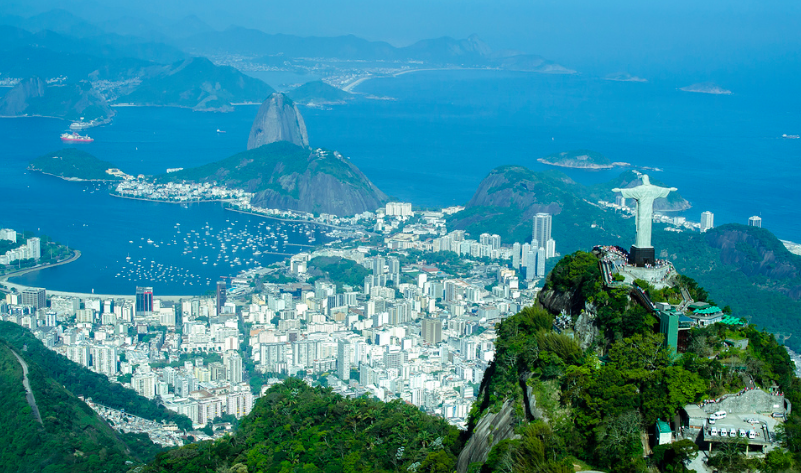
As I buy some groceries, my Airbnb host Paulo raises his eyebrows, “This is really expensive.” My shopping is about 10 Euros, not something I would realistically consider ‘splurging.’ “Two years ago this would have been half the price,” he tells me. Prices have gone up majorly due to the recession and the poorer population is increasingly suffering from it.
Social initiatives proposed by the worker´s party, Partido dos Trabalhadores, over their presidencies, from 2011 until the impeachment of Dilma Rousseff, have been able to close some of the gap between the rich and poor, but larger control of the state in the economy has slowed down Brazil’s formerly rapid economic growth leading to large scale unemployment and growing poverty. This dissatisfaction with the government and the perceived wrong spending of huge sums of money for the World Championship and Olympic Games have lead to large scale demonstrations all over the country.
However not all Brazilians think the impeachment of Dilma Roussef is the right call, in fact the words “Fora Temer” (Out with Temer) are visible in every city I visit during my travels in Brazil. Temer – the former vice president – took office without official elections after Dilma´s impeachment to serve until what would have been the end of Dilma’s time in office January 1st 2019. For some Brazilians despite the fact that it is in line with the constitution, this is a crime against democracy. Dilma was impeached over supposedly taking loans from state banks without congressional approval, however this has been quite common practice in Brazil and some voices wonder if this is not simply an excuse to end the workers party´s long time leading period. “I don’t love Dilma or her politics” Flora a film student I meet in a hostel in Florianopolis tells me “but I think the accusations are just an excuse to get her out of office, because her controlled economy kept the rich from making too much money”.
Brazil will probably need some time to recover from the unrest, the major political scandals and the Petrobras corruption scheme. It is certain that Brazil remains a deeply divided country for some time to come. And while volunteering for the Olympics might be still seen as supporting a majorly corrupt organisation, it has shown me not only the wonderful way in which sports and passion can connect people, but has given me a much broader and deeper understanding of the underreported political situation in Brazil as well as the struggles in this country that I could have never understood, had I not been there for the Olympics.
Céline Sonnenberg
Photo Credit: Céline Sonnenberg
